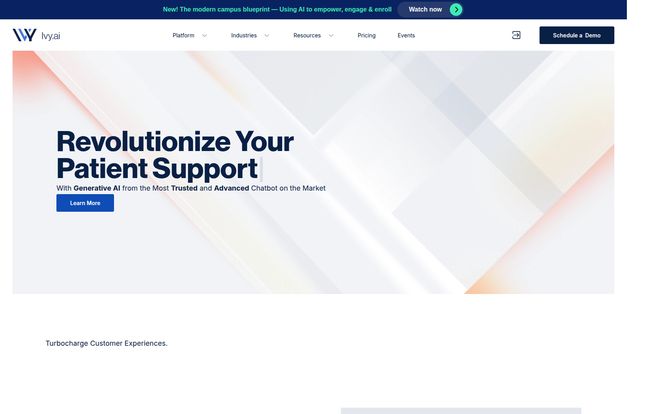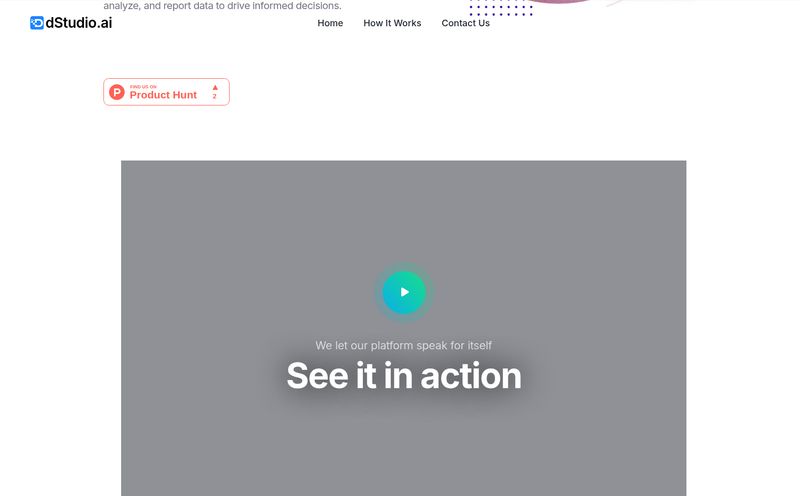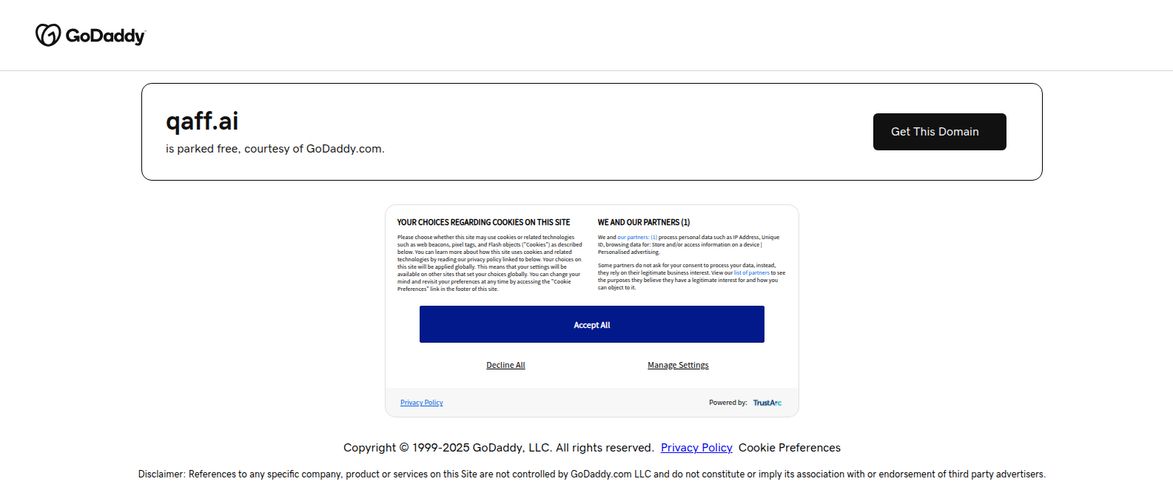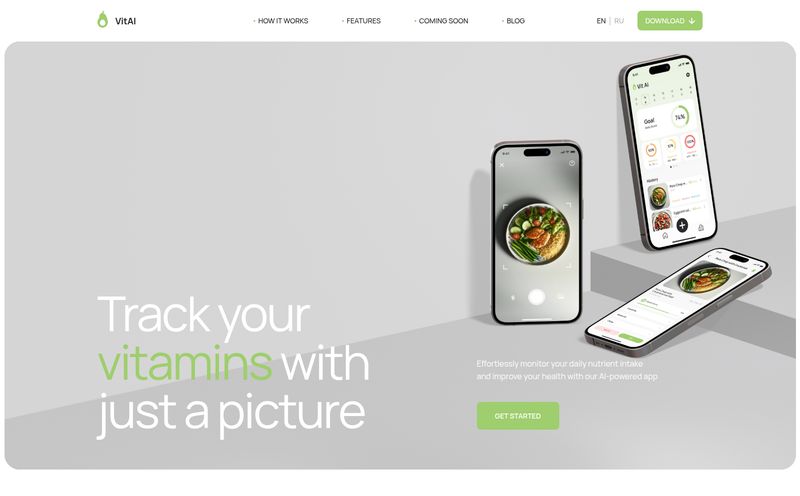We’ve all been there. You land on a website, a little chat bubble pops up, and you think, “Great, maybe I can get a quick answer.” Five minutes later, you’re in a circular logic hell, screaming “I WANT TO SPEAK TO A HUMAN” at an unfeeling algorithm that only knows how to say, “I’m sorry, I don’t understand that.”
It’s a universal experience. Most chatbots... well, they suck. They're glorified FAQ pages that barely understand basic queries. For years, as an SEO and traffic guy, I’ve seen companies implement them with high hopes, only to watch them become a source of customer frustration rather than a solution.
So when I came across a platform called Ivy.ai and its IvyQuantum™ system, my professional cynicism was on high alert. Their claim? A chatbot that autonomously builds itself and keeps its knowledge perfectly in sync with your website. No tedious manual programming of every single question and answer. It just… learns. It sounded a little too good to be true. But then I saw the logos—Penn State, Duke, NYU, Temple University. These aren't small-time players. My curiosity was officially piqued.

Visit Ivy.ai
So, What is Ivy.ai, Really?
At its heart, Ivy.ai is a conversational AI platform designed to take the grunt work out of customer (or in many of their case studies, student) support. But its approach is what makes it different. Instead of handing you a blank slate and a box of complicated tools, Ivy.ai starts by doing the homework for you.
Think of it like hiring a brilliant, tireless intern. On day one, this intern doesn’t ask you a million questions. Instead, it sits down and reads your entire website. Every page, every policy document, every program description, every single blog post. It absorbs it all. By day two, it can answer questions about what it just read. That, in a nutshell, is Ivy.ai.
Its core technology is a sophisticated AI Web Crawler that ingests your existing website content to build its knowledge base. This means the chatbot isn't starting from zero. It's starting with the sum of all the public knowledge your organization has already created. It's a simple, yet kinda genius idea. Why reinvent the wheel when you've already published the manual?
The Features That Make IvyQuantum Stand Out
Okay, the self-building part is the main headline. But a few other things caught my eye as I looked through their offerings.
The AI Web Crawler is the Secret Sauce
Let's talk more about this crawler. This is the engine of the whole operation. The idea is to point Ivy.ai at your website and let it create the initial bot. What’s more, it keeps crawling to detect changes. Did you update the financial aid deadline on a buried page at 2 AM? Ivy’s bot knows. This continuous sync is meant to eliminate the age-old problem of chatbots giving out-of-date information—a massive trust killer for users.
Generative AI with a No-Code Safety Net
IvyQuantum uses generative AI to provide natural, human-like answers. But it's not the wild-west, make-things-up version of AI we sometimes see. It's grounded in the data it pulls from your site. For the control freaks among us (guilty!), there's also a No Code Flow Builder. This lets your team jump in and create custom conversation paths or tweak specific responses without needing to be a developer. It's a nice balance between full automation and manual control.
Speaking Your Customer’s Language, Literally
The platform boasts multilingual and omnichannel support. This is huge. Your audience isn't just on your website; they're on Facebook Messenger, using SMS, maybe other platforms. Ivy.ai aims to provide a consistent experience across all of them. And being able to do it in multiple languages without a massive manual translation project is a serious advantage for any organization with a diverse audience, especially universities or global brands.
The Real-World Impact on Workload and Satisfaction
This is all great in theory, but what about the results? This is where the SEO and CPC side of my brain kicks in. What's the ROI? From the data they've shared, it looks pretty impressive.
Temple University, for instance, saw its call volume drop by 30%. Let that sink in. A thirty percent reduction in calls means your support staff is freed up from answering the same questions over and over again. They can focus on the complex, high-touch issues that a bot can't handle. Morehouse College reported saving over $500,000. These aren't chump change numbers. This is a real, measurable impact on an organization's bottom line and operational efficiency.
It’s not just about reducing costs either. They claim a 300% increase in 5-star ratings for some clients. This makes sense. If users get a fast, accurate answer from a bot, they're happy. If they get stuck in a loop of confusion, they're frustrated. A smarter bot leads to better customer experience, which is the holy grail of what we're all trying to achieve online.
Okay, What’s the Catch? A Look at the Potential Downsides
No tool is perfect, and my job isn't to be a cheerleader—it's to be a realist. Based on the information and my experience with similar platforms, there are a few things to keep in mind.
First, the whole system hinges on the quality of your existing website content. Ivy.ai is powerful, but it's not a mind reader. If your website is a mess—with outdated info, conflicting pages, and confusing navigation—your chatbot will be too. It’s the ultimate “garbage in, garbage out” scenario. Before you even think about a tool like this, you need to do a serious content audit. Is your site the single source of truth? If not, fix that first.
Second, while they promote a no-code builder, getting the initial AI crawler configured just right might require some technical chops. Fine-tuning what it should and shouldn't crawl, setting priorities—it's not something you'd want to hand over to a complete novice. You'll likely need someone with a bit of a technical mindset to oversee the setup for the best results.
The Big Question: What's the Ivy.ai Pricing?
Ah, the classic B2B SaaS mystery. You won't find a pricing page on the Ivy.ai website. You have to schedule a demo and get a custom quote. I know, I know, it's frustrating. As a buyer, I want to see the numbers upfront!
But in the enterprise space, this is common. The price depends on so many factors: the size of your website, your monthly traffic volume, the number of integrations you need, the level of support you require. A giant university system like Penn State has vastly different needs than a small private college. So, a one-size-fits-all price just doesn't work. The takeaway here is that Ivy.ai is an enterprise-level solution, and you should expect enterprise-level pricing. You’ll have to contact their sales team to get the real numbers for your specific case.
Frequently Asked Questions About Ivy.ai
Who is Ivy.ai best for?
Based on their client list and features, Ivy.ai is primarily geared towards large organizations with complex websites and high volumes of repetitive inquiries. They have a strong foothold in higher education (colleges and universities) and are also targeting healthcare. Any large enterprise looking to automate customer support could be a good fit.
How does the Ivy.ai chatbot learn?
The chatbot's primary learning method is through its proprietary AI Web Crawler. It automatically reads and indexes the content of your website to build a knowledge base. It then uses generative AI to answer user questions based on that content. It also learns from user interactions over time to improve its performance.
Can I customize the chatbot’s answers?
Yes. While the bot is designed to be autonomous, Ivy.ai includes a no-code flow builder. This allows your team to manually create or edit conversation flows, override automated answers, and ensure the bot's personality aligns with your brand voice.
What if my website content isn’t perfect?
This is a critical consideration. If your website has inaccurate or outdated information, the chatbot will reflect that. It's highly recommended to perform a thorough content audit and clean up your website before implementing a tool like Ivy.ai to ensure the bot provides reliable answers.
Does Ivy.ai integrate with other software?
Yes, the platform is designed for seamless integration with third-party vendors. This includes student information systems (SIS), customer relationship management (CRM) software, and other enterprise platforms to create personalized and automated user experiences.
My Final Thoughts on IvyQuantum
So, is Ivy.ai the magic bullet that will solve all our chatbot woes? Not magic, no. But it is a very, very smart approach to a widespread problem. The concept of a self-maintaining knowledge base that syncs with your website is a powerful one. It moves chatbots from being a high-maintenance chore to a low-maintenance asset.
For the right organization—one with a solid content foundation and the budget for an enterprise tool—Ivy.ai could absolutely be a game-changer. It’s a serious tool for serious support automation. It's not just another dumb pop-up; it's a chatbot with a 'Higher IQ', as they put it. And in a world of increasingly frustrating digital experiences, a little more IQ is something we can all appreciate.



